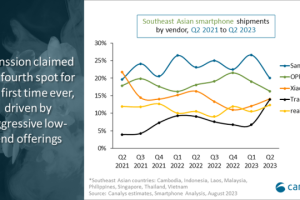Prime minister Narendra Modi’s “Digital India” campaign seems to have triggered a game of one-upmanship among his ministers.
Three weeks after the Health Ministry circulated a concept note for a three-tiered telemedicine network, the Department of Information Technology has actually gone ahead and launched an ambitious scheme for setting up 60,000 telemedicine centres across the country in partnership with the Apollo Group.
The twist in the tale: the Health Ministry, which has the largest presence in rural areas for which these centres are meant, is not a part of the plan in any capacity.
The Health Ministry runs a total of 1,53,655 sub-centres, 25,308 primary health centres (PHCs) and 5,396 community health centres (CHCs) in rural areas.
Interestingly, there is also no plan to provide diagnostics at these centres. While those running them will be provided kits to measure vital signs like blood sugar, blood pressure, oxygen saturation etc, but should anything more be required, patients will have to be referred to the nearest medical facility – which would most often be one run under the Health Ministry’s National Health Mission.
Most importantly, for every such telemedicine consultation, the patient will have to pay Rs 100, of which Rs 45 will go to the Apollo Group. The Health Ministry proposal did not envisage any user charges, though in its note the ministry had left the option of public private partnership open.
“Ministry Of Health And Family Welfare is not clear what role has been envisaged for the Department of Health in running and operating of these centres,” said joint secretary Ali Raza Rizvi, who looks after the telemedicine programme of the Health Ministry.
The ministry is in the process of preparing a Cabinet note for a three-tier system involving medical colleges, district hospitals and sub-district level institutions.
“The Health Ministry will not be kept out of the it, my officials will get in touch with them. This is a unique initiative of its kind, with Apollo Hospital specialists giving consultation. Once this has come into a shape, we will certainly involve them. As for the payment, I have asked them to reconsider for SC/ST etc. But you see the people who operate the centres will also need some incentive,” Telecom Minister Ravi Shankar Prasad said.
Asked why the Health Ministry was kept out of the initiative, Sangita Reddy, Managing Director of the Apollo Group, said: “Health (ministry) was not kept out. The health secretary has been involved, he was supposed to be present today but could not make it.”
The Common Service Centres (CSCs) — run by DeitY — will function as telemedicine centres and the people manning these would be given basic training in operating the diagnostic kit.
During his inaugural speech at the launch of the Social Endeavor For Healthcare and Telemedicine (SEHAT), Prasad spoke at length about the empowerment of women working at the Commons Service Centres, especially those from the Dalit and Mahadalit communities.




























